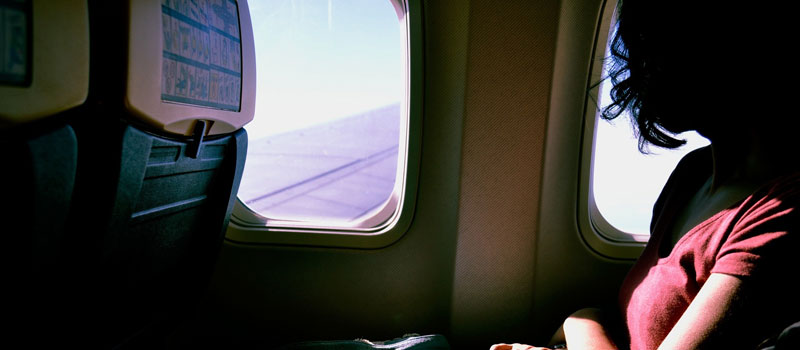A guide to flying with a disability

The Focus on Disability team are keeping positive and upbeat by looking ahead to when we are able to book our holidays abroad again!
Usually most of us take holidaying to far-flung destinations for granted. It’s easy to hop on a plane and jet off somewhere luxurious. For those flying with a disability though, things can be slightly more challenging.
In their guide the travel experts at Parking4Less discuss everything you can do to make planning your holiday easier. From the flights themselves, to staying safe while you’re away, this is your one-stop-shop for accessible travel advice:
Barriers for disabled travellers
There’s no one issue which applies across the board for all disabled travellers. There are a series of hurdles which you might face throughout any point of your journey.
Some of the most prevalent include:
- Wheelchair damage
A wheelchair is a critical piece of equipment for many disabled travellers. Worryingly, a recent report suggested that major airlines in the US lost or damaged as many as 26 wheelchairs on a daily basis. With some chairs costing tens of thousands of pounds, this is a natural concern for travellers.
- Being abandoned on a plane
It sounds unlikely, but you’d be surprised at what can happen when you arrive at another airport. In one high-profile example, Paralympian Anne Wafula Strike was left on a plane at Stansted Airport, when accessibility staff failed to turn up and collect her. She ended up sitting on the plane alone for 45 minutes as she waited for staff.
- Confusion or a lack of clarity in the booking process
As we’ve already seen, this is a stage where people have explicitly cited problems they’re having. While often given the option to add assistance at the booking stage, it can be unclear what’s actually involved. Usually, the largest confusion lies in what support you’ll receive at your destination airport.
- Confusion or a lack of clarity in the booking process
You’ll need a doctor’s letter if you’re taking 100ml or more of medication onto the plane. You also must make sure to check the laws on this for the country you’re headed to. They may be different to the UK.
Flying with a disability
Getting medical clearance
Before you travel, you’ll need to make sure you have medical clearance from a healthcare professional to do so.
Most airports will ask you about this when you say you’d like additional assistance. Usually, a medical check will be carried out in two steps:
01. Provide information about your condition
This means informing them about exactly what your condition is, and how it might affect you while travelling. For most travellers this is the first and last stage. So long as your condition isn’t negatively impacted by travel, no further clearance will be required.
02. Completing a form
If the airport requires more detail, at this point you’ll be asked to fill out a form. This will be different depending on where you’re travelling from. There’s a chance a doctor’s note will be required.
Help you can get at airports
When you arrive at an airport, you should be able to locate an assistance point. These are located both in and outside of terminals, and are set up to help make getting about more easily.
If you have driven to a UK airport and need to park there are special arrangements at some airports for Blue Badge or Disabled travellers. We have added a section to our Gatwick parking page with more detailed information than we can cover in this guide.
If you arrive at a point and no member of staff is available, you’ll be able to ring the number provided. Someone should be along to come and pick you up shortly after this.
The staff at these points can help you with a number of things, including:
>In the airport<
You may have noticed the small transport shuttles which ferry people throughout a terminal. These can:
- Take you to designated special assistance areas within the terminal
- Help you arrive at and get through check-in and bag drop-off points
- Take you through security into the departure lounge, and on to the departure gate
This can be a much quicker means of getting from A to B for travellers who struggle with getting about on their own.
Boarding
Getting on a plane can be a challenge if you’re disabled. As such, specialist staff will do what they can to make the process as easy as possible.
They’ll help you to get through the gate, find your seat on the plane and stow your carry-on bag. This is usually carried out with a number of different pieces of equipment, such as:
- Ambi-lifts
- Ramps
- Small transfer wheelchairs
These are designed to make things as comfortable for you as possible.
At your destination airport
Staff from the airport you’re travelling to should return your wheelchair. You may also be entitled to help through the airport. In some circumstances, this could be all the way to a train or bus station.
This is something you might want to liaise with the destination airport on ahead of time. It would be useful to know what is and isn’t covered on their end.
You can read the full unabridged article on the Parking4Less.com website: https://www.parking4less.com/flying-with-a-disability
It has extra information on the following:
- Accessible travel for UK tourists: Disabled travel statistics, Barriers for disabled travellers, Travel initiatives to help
- Flying with a disability: Getting medical clearance, Help you can get at airports, Getting special assistance on your flight, Travelling with medical and mobility equipment
- Enjoying an accessible holiday: Booking a disability-friendly hotel, Most accessible cities in the world, Disabled holiday dos and don’ts
- Medical advice for travellers: Medical advice for disabled travellers, Advice for other types of travel, Creating a pre-holiday checklist
- FAQs & secondary sources: FAQs, Links & secondary sources
Looking for Travel Insurance that will cover your pre-existing medical condition?
Get Going Travel Insurance are specialists in travel insurance for customers with a range of pre-existing medical conditions – from asthma and high blood pressure to more serious or terminal conditions such as cancer , with a variety of policies that suit any budget. They believe that travel insurance should be available to anyone, not just those who present less risk; people with pre-existing medical conditions want to travel just as much as those without, and that shouldn’t mean that a travel insurance policy should cost more than their trip.


